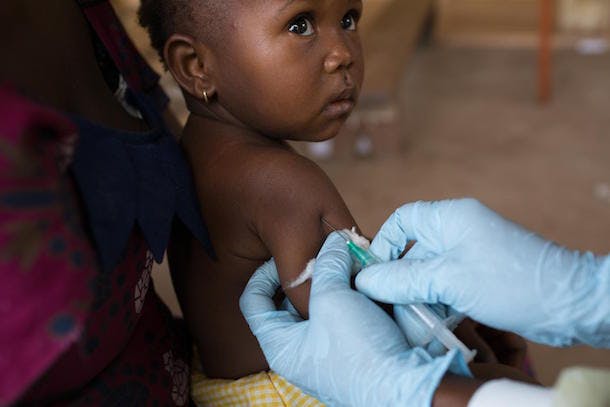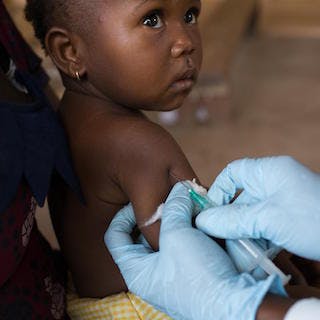
The Ebola virus epidemic in West Africa decimated health systems in affected countries, including routine immunization activities. Now Sierra Leone is grappling with a measles outbreak that started last year and has continued to grow, with more than 1,000 suspected cases of measles in the country.
Working with the Measles & Rubella Initiative, a global partnership to stop measles and rubella (of which the UN Foundation is a founding partner), and with financial support from Gavi, the Vaccine Alliance, Sierra Leone is developing a country-wide response targeting 1.75 million children with measles vaccinations this month.
The outbreak in Sierra Leone is a reminder that despite the progress the international community has made against measles in recent decades, there is still work to be done. On average, measles kills 314 people every day – mostly children.
In addition to Sierra Leone, so far this year there have been measles outbreaks in Afghanistan, Cambodia, Chad, the Democratic Republic of Congo, Djibouti, Ethiopia, Kenya, Liberia, Libya, Namibia, Nigeria, Pakistan, South Sudan, and Sudan.
The good news is we have a solution to stop measles: vaccines, which are safe, proven, and effective. They’re also cost-effective: It costs less than $2 on average to vaccinate a child against measles and rubella in low-income countries. Since 2000, measles vaccination has prevented more than 17 million deaths.
The challenge is that millions of children still don’t have access to the measles vaccine. And currently, the Measles & Rubella Initiative is facing a $73 million funding gap, which will prevent millions of children worldwide from receiving the vaccinations they need to stay safe from this deadly disease. The funding gap will also adversely impact the world’s ability to detect measles cases and respond quickly to prevent outbreaks.
Now is the time for the international community to step up its commitment to ending measles deaths. Vaccines work, and we need to increase resources and funding to make sure every child, no matter where she or he lives, has access to the protection they provide.
TAKE ACTION: Visit measlesrubellainitiative.org to learn more and to donate. You can also visit the UN Foundation’s Shot@Life campaign to support UN efforts to provide global childhood vaccines.
[Photo: UNICEF]

